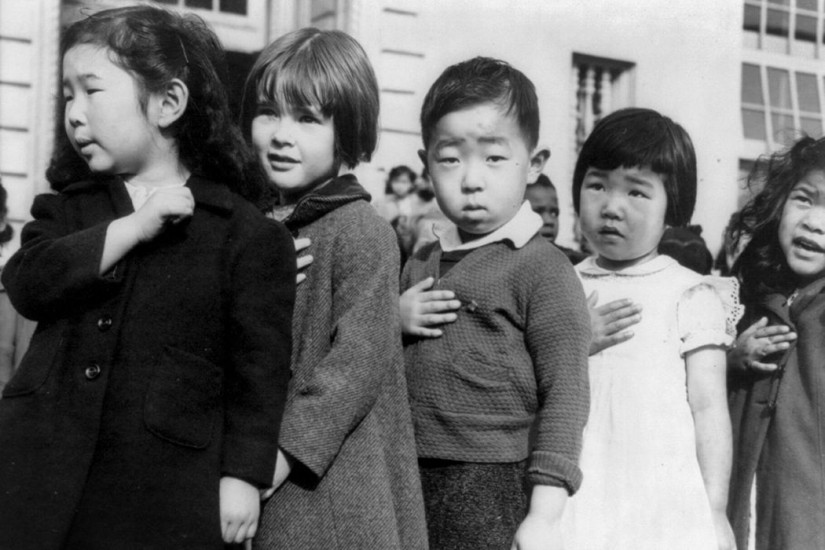Trump ally Carl Higbie recently cited Japanese internment camps during World War II as a “precedent” for a proposed registry of Muslims in the U.S. The attitude toward Japanese-Americans in 1942, when the government interned more than 100,000 men, women, and children in camps around the country, has obvious parallels today. Government authorities saw an entire ethnic group as a potential national security threat because of its supposed ties to a hostile power abroad.
A 2007 paper by Hui Wu reveals unintended consequences of targeting a group based on ethnicity that may also have parallels today. Wu examines these issues through the lens of papers written by interned high school students at a camp in Arkansas.
Wu describes a bleak environment in the camps in Arkansas, located in swampland surrounded by barbed wire and watchtowers manned by armed guards. Prisoners were forbidden radios or any other source of information about the outside world. Overcrowded living quarters forced families to share one-room apartments with strangers. Food was insufficient, and stagnant water bred mosquitos, which spread disease.
In this environment, the War Relocation Authority (WRA) assigned teachers the task of giving their students “an understanding of American ideals” and promoting “loyalty to American institutions.”
